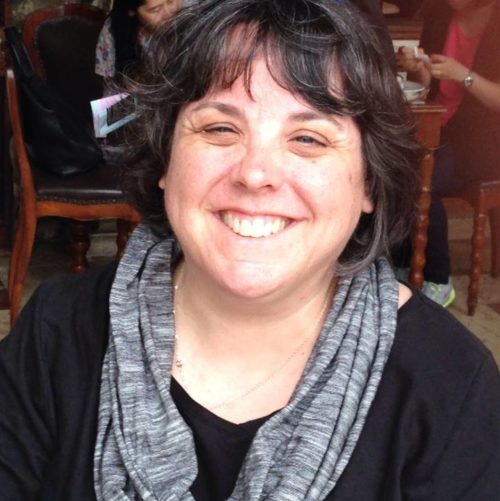“What we have loved,
Others will love, and we will teach them how…”
–William Wordsworth, The Prelude
I’m starting to see a lot of first day of school pictures in my Facebook feed. I don’t start teaching for another couple of weeks, but I’ve already been prepping for some time for the new semester. Nerdy I realize, but I’m always excited when a new school year approaches—so much possibility.
This fall, I’m teaching all “intro” classes—first year composition and core literature. At many institutions, faculty at my rank and level of experience (read: old) would rarely, if ever, have such a schedule. More often these days, when 70% of the teaching faculty nationwide is made up of adjunct labor, first year students might not even see a senior professor. Indeed, many in academe have traditionally seen the movement away from intro classes as a “reward.” And to be sure, they are hard classes to teach—much harder in many ways than classes in one’s specialty. Which is exactly why I believe the most experienced professors should be teaching a sizeable percentage of them (and why I remain so grateful to teach in a department and at a college with a strong commitment to all of us teaching “gen ed” students with the same commitment and quality we teach our majors.)
Here’s a couple of reasons why:
1. Appreciation
I adore the enthusiasm of first-year students. Even when they are scared and overwhelmed by all that is new in the college experience, they are raring to get going to change the world. They’ve got a million ideas and the idealism to match. In a world where cynicism can be a default, they are a tonic. They’re also so talented (even as they don’t always see it in themselves fully yet—which is also charming) that I can never despair about the future.
2. Hospitality
I get the honor of being one of the people who helps students learn how to “do” college. Intro classes—especially something like 1st year writing—are not simply about academic content but about teaching habits of mind and instilling modes of self-discipline that will bring students success beyond the “gen ed” classroom. It’s giving students ways of being, instilling a lifelong curiosity and love of knowledge and, hopefully, a little confidence in themselves as learners, too. And maybe convincing them that they could like subjects (writing and literature) for which they may think they have little aptitude. Certainly, first year students can be naïve and clueless (and prone to not read the syllabus)—but no one comes to college knowing how it all works. Education is not ever just the what, but the why and the how and the when. And everyone needs a guide to encourage and inspire.
3. Fundamentals
I love introducing students to the broad sweep of literature and to the power of story, to the magnitude of language and to themselves as meaning-makers. Here is where we get to invite students into the wonder of our disciplines. Here is where we get to equip them to begin to think and write well. Here is where we get to challenge them to grapple with difficult concepts and difficult texts. And here we get challenged professionally to see if we can communicate the essentials to smart young people. Anyone can lament about “kids these days” and all they don’t know—but to connect core subjects with what students actually bring to the college classroom and make those subjects relevant and meaningful is a much more difficult task. Few things are as rewarding, though.
4. The Pastoral
We all know that the early years of college can be trying ones—so much change, so many new stresses, so much struggle with big ideas and big demands. Students mess up, miss deadlines, procrastinate, self-sabotage. After all my years in the classroom, I’ve seen most things before, but of course, for students this is their first time through—and it can feel calamitous. I see younger folks get dismissed all the time as “snowflakes” or get mocked for their fragility. But it is a fragile time—a time where truth and grace need a very careful balance from we folks who are walking alongside, a time where students need to be given space to try and fail. And fail again. It is not condescending to acknowledge that young adults are both young and adult. And if we who teach are given the opportunity to speak into an emerging adult’s life in an office hour or a mentoring session, we should count it only privilege, not get annoyed because they don’t know better already.
5. Learning
Like many teachers, I started off teaching people not that much younger than I was. Those days were now very long ago. Instead, every year brings students who come with contexts of which I have little to no experience. (That was probably always true, but our pop culture connections perhaps obscured deeper diversities.) The joy of having students who come out of so many different backgrounds—and often who have nothing in common with me in terms of intellectual or any other kind of interests—is that each class brings new eyes and hearts to our work. Indeed, I have never had a semester pass when students did not help me see anew the subjects to which I have devoted my life.
One of my favorite hymns has always been “O God Our Help in Ages Past.” For a long time, the song mostly made me reflect on the possession of a “goodly” heritage—in the long history of Christendom or in the testimony of my immediate ancestors. But the older I get, the more I think about the next line. In teaching at a faith-based institution, I share in the “ages past” with my students, but it is in our time together in the classroom as they prepare to do God’s work in God’s world that the assurance of “our hope for years to come” shines brightest.

